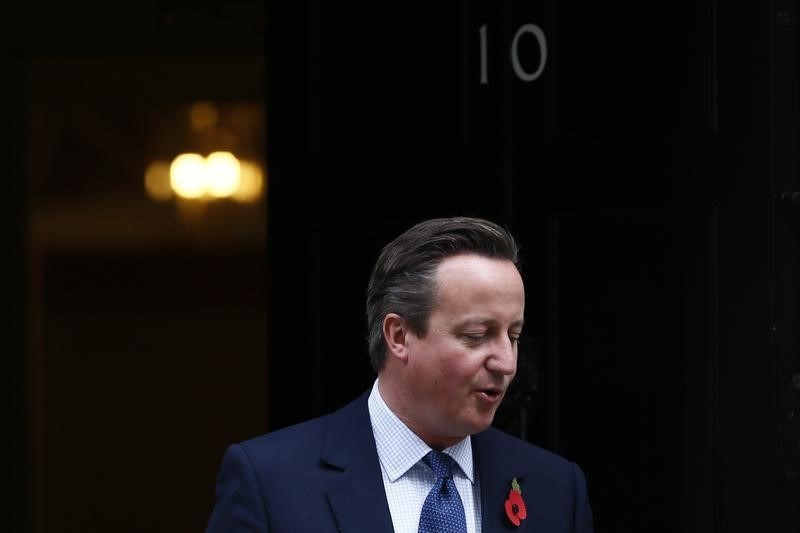Gold prices set for weekly gains on dovish Fed outlook; silver near record high
By Jemima Kelly
LONDON (Reuters) - British growth would plunge to 1 percent and stocks would underperform by as much as 20 percent if voters opted to leave the European Union, U.S. investment bank Morgan Stanley (N:MS) said in a report on Wednesday.
The bank puts the chances of "Brexit" at 35 percent, with its base case a "close call" that would still see significant market uncertainty and volatility in the lead-up to the referendum but ultimately a vote to stay in the EU.
Prime Minister David Cameron has promised to renegotiate Britain's EU ties and then hold a referendum by the end of 2017 on whether to remain a member. Most observers believe the ballot will come next year, with Morgan Stanley betting on autumn 2016.
Economic growth would sink to just 1 percent the following year on the heightened uncertainty, and stocks would lag their European and global peers by 10-20 percent in the event of a vote for Brexit.
The UK economy grew at an annual pace of 2.6 percent in the second quarter this year, one of the fastest rates of growth in the developed world.
"We would expect radical uncertainty about the future of the trading relationship with Europe, and enhanced domestic political risks," Morgan Stanley said.
Proponents of leaving the European Union argue that the grouping, far from stimulating Britain's trade, restrains it. An exit would allow Britain to trade more easily with the rest of the world while maintaining European links through an association agreement with the EU.
The bank said the "referendum shock" of Brexit would see less foreign investment in Britain and a slowdown in consumption, leading the Bank of England to refrain from raising interest rates for a year.
Sterling would see a further 5 percent decline against the dollar, falling to $1.39 by the end of 2016, down from its current $1.54.
Sterling's weakness would help fuel a short-term run up in inflation above 2 percent. Inflation in Britain is currently zero.
Even in Morgan Stanley's base-case, Brexit fears should favour international large-cap stocks, at the expense of smaller, more exposed British and European companies.
Morgan Stanley International chief executive Colm Kelleher told a London banking summit on Tuesday that a Brexit would lead to "a significant backlash against London as a financial centre".
